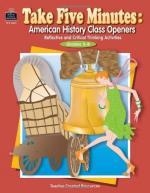|
This section contains 179 words (approx. 1 page at 300 words per page) |

|
During the second half of the nineteenth century urban politics ran on extensive systems of "boodle," or kickbacks. Politicians needed cash for their political campaigns — to pay for advertising and printing costs, to pay to get voters to the polling places, and to distribute favors to those who worked for their reelection. The paychecks of mayors and other city officials were never high enough to take care of all these expenses, but there was another source of ready money. When the city awarded contracts for public improvements such as water and sewer systems, bridges, highways, gas and trolley lines, parks, and public buildings, contractors earned large profits. In fact, such a contract represented hundreds of thousands, often millions, of dollars for the company that submitted the winning bid. For such a construction firm or utility company it was a small cost to include an under-the-table...
|
This section contains 179 words (approx. 1 page at 300 words per page) |

|




